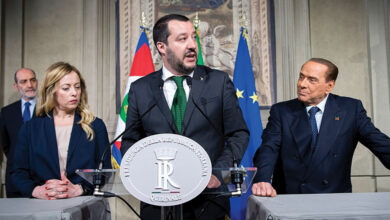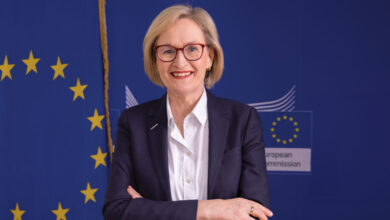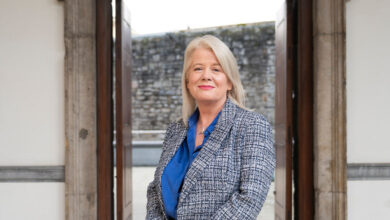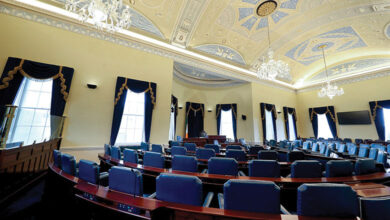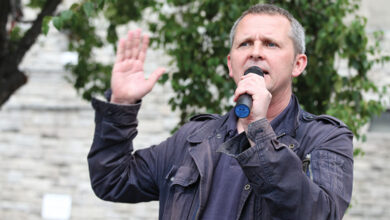RTÉ’s Irish language television content reflective of the State’s relationship with Irish
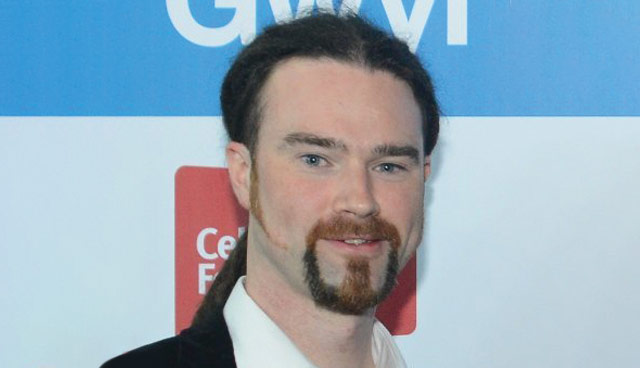
Last month’s finding in the annual report of the State’s official languages watchdog body that RTÉ was in breach of the provisions of the 2009 Broadcasting Act will not have come as much of a surprise. Irish speakers have become accustomed to the State as a whole consistently neglecting its self-stated goal to revive, normalise, support and promote the Irish language, writes Muiris Ó Fiannachta, Station Manager of Raidió na Life.
The precise figure revealed in An Coimisinéir Teanga’s annual report for 2018 was “that only 0.7 per cent of programmes broadcast on RTÉ television are classified as Irish language programmes”.
Notwithstanding that differences of opinion exist, the constitutional status of An Ghaeilge as An Chéad Teanga Oifigiúil — is largely respected, even if by some only as a matter of important national cultural symbolism. To accept that placing Irish above English as the first official language is rooted in conscious symbolism, the accidental symbolism of the less than 1 per cent of television programmes broadcast in Irish on the State’s main broadcaster is dishearteningly dismal.
For a language to live, it must be spoken, heard, seen and read. For it to thrive it must have a vibrant, all-encompassing presence, from real usage in family, community and social settings, to usage in officialdom and the apparatus of the State. With minority languages, these must be actively supported, planned and financed.
The State pays for one national Irish-language radio station, RTÉ Raidió na Gaeltachta, and for TG4, which also depends on commercial income to supplement its state funding. Outside of the Gaeltacht, Irish is making headway in a multitude of spheres at grassroots level – spearheaded by the Irish-language-medium education movement and a steadily increasing number of gaelscoileanna in every county. A wider Irish-medium social landscape is making a big difference at microlevel, particularly given their limited or non-existent funding, such as daily online newspaper Tuairisc and monthly youth culture magazine Nós as well as an increasing Irish-language voluntary radio sector (e.g. Raidió na Life and Raidió Fáilte) and grassroots initiatives to get people speaking Irish in mixed social settings such as Na Gaeil Óga and the Pop-Up Gaeltacht. Some of these receive funding assistance from Foras na Gaeilge, while others are undertaken on an entirely voluntary basis.
There needs to be more provision of services from the State itself when it comes to the first official language. A minimal presence and marginalisation of Irish on the television channels of the State’s broadcaster is not good enough. Credit where it’s due, RTÉ’s increased Irish language content on its website and social media platforms is a stride in the right direction, as is the increased usage of Irish on continuity announcements. There have also been notable high-quality bilingual programmes such as the recent My Tribe/Mo Threibh mini-series exploring the world of musical subcultures. Yet even on a series broadcast on RTÉ’s regular Irish language slot of 7:30pm on Monday evenings, preference is given to English in the series’ title. Were any more symbolism needed to demonstrate the broadcaster’s take on its role in provision of programming in Irish, there it is.
In its public statements on the commissioner’s report since it was published in April, RTÉ has defended its record in providing Irish language content, stating that it considers the hour of Irish language programming which it provides daily to TG4 to be part of its content, while also stating that although it accepts that the amount of television programmes broadcast in Irish is relatively low, that RTÉ does not view its requirements to provide Irish language content on a platform by platform basis, but rather on the broadcaster’s entire output over all of its platforms, from TV to radio to online.
RTÉ is due to respond in full to An Coimisinéir Teanga by 1 June. Irish speakers will no doubt take a particular interest in the broadcaster’s full response. Will it be more of the same, or will there be more ambition and commitment from the national broadcaster for the national language? Nósfaidh an aimsir.

